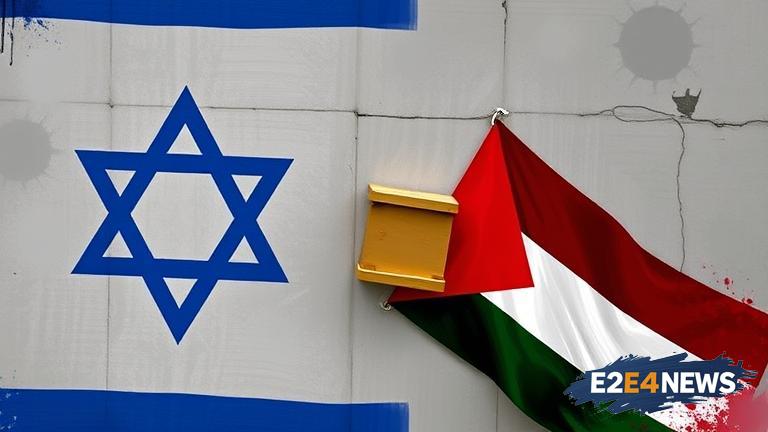The Israeli government has announced a series of limited aid measures for the Gaza Strip, in an effort to alleviate the humanitarian crisis that has been unfolding in the region. The move comes amid global condemnation over the widespread starvation and suffering of Palestinian civilians in Gaza. The aid measures, which include the provision of food, medicine, and other essential supplies, are seen as a response to the growing international pressure on Israel to address the crisis. However, critics argue that the measures are too little, too late, and that they do not go far enough to address the root causes of the crisis. The Gaza Strip has been under a blockade imposed by Israel and Egypt since 2007, which has severely restricted the flow of goods and people into and out of the territory. The blockade has had a devastating impact on the economy and living standards of Gaza’s 2 million inhabitants, with widespread poverty, unemployment, and food insecurity. The situation has been further exacerbated by the COVID-19 pandemic, which has placed an additional strain on the already fragile healthcare system in Gaza. The international community has been vocal in its condemnation of Israel’s actions, with many countries and organizations calling for an immediate end to the blockade and the provision of humanitarian aid to those in need. The United Nations has warned of a looming humanitarian catastrophe in Gaza, with the potential for widespread famine and disease. Despite the international pressure, Israel has maintained that the blockade is necessary for security reasons, citing the threat posed by Hamas, the Islamist militant group that controls Gaza. However, critics argue that the blockade is a form of collective punishment, which is illegal under international law. The limited aid measures announced by Israel are seen as a attempt to mitigate the crisis, but they are unlikely to have a significant impact on the ground. The measures include the provision of 10,000 tons of food, including wheat, rice, and sugar, as well as medical supplies and other essential goods. However, the aid is subject to strict conditions, including the requirement that it be distributed through Israeli-approved channels. Critics argue that this will limit the effectiveness of the aid, and that it will be used as a tool of political control. The international community is calling for a more comprehensive and sustainable solution to the crisis, including the lifting of the blockade and the provision of unconditional humanitarian aid. The situation in Gaza is a complex and deeply entrenched one, with a long history of conflict and occupation. The Israeli-Palestinian conflict has been ongoing for decades, with periods of relative calm punctuated by outbreaks of violence. The conflict has had a devastating impact on civilians on both sides, with widespread human rights abuses and a lack of accountability. The international community has a critical role to play in resolving the conflict, through the provision of diplomatic support, economic aid, and humanitarian assistance. However, a lasting solution will require a fundamental shift in the approach of all parties involved, including a commitment to peaceful negotiation and a willingness to compromise. The situation in Gaza is a stark reminder of the need for a comprehensive and sustainable solution to the Israeli-Palestinian conflict, one that addresses the root causes of the crisis and provides a framework for a lasting peace. The limited aid measures announced by Israel are a step in the right direction, but they are only a small part of a much larger solution. The international community must continue to pressure Israel to lift the blockade and provide unconditional humanitarian aid, while also supporting efforts to negotiate a lasting peace. The people of Gaza deserve nothing less, and the international community has a moral obligation to act. The crisis in Gaza is a humanitarian emergency that requires an immediate and sustained response. The international community must come together to provide aid, support, and protection to those in need, while also working towards a lasting solution to the conflict. The situation is complex and challenging, but it is not impossible to resolve. With determination, courage, and a commitment to peace, it is possible to create a brighter future for the people of Gaza and the region as a whole.
